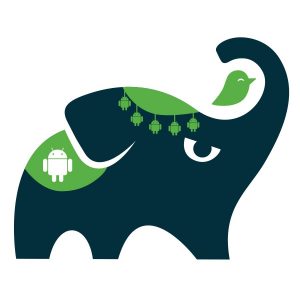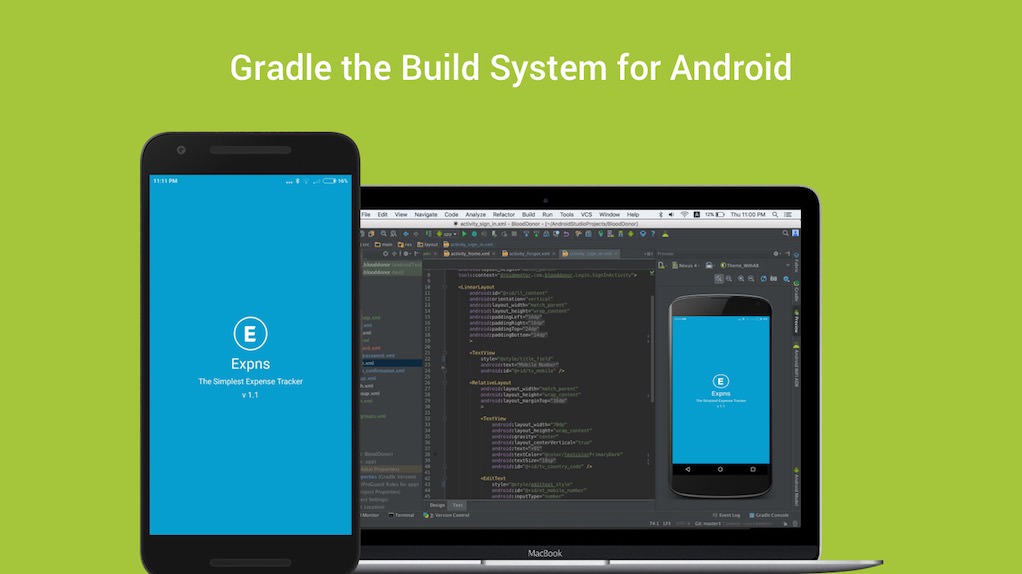Gradle is the build system that takes the best features from other build systems (Ant & Maven) and combines them into one. It is a plugin based system.

It builds APK by using all the source files, then applies the appropriate tool (java class into dex file), and group them into a single unit.
Gradle simplifies the following process :
- Build different flavours or variants of your app
- Make simple script-like tasks
- Manage and download dependencies
- Keystore customization
A Gradle project describes its build in a file called build.gradle located in the root folder of the project. The following snippet shows the simple build file.
| buildscript { | |
| repositories { | |
| jcenter() | |
| } | |
| dependencies { | |
| classpath ‘com.android.tools.build:gradle:2.2.0’ | |
| } | |
| } | |
| apply plugin: ‘com.android.application’ | |
| android { | |
| compileSdkVersion 23 | |
| buildToolsVersion "23.0.3" | |
| defaultConfig { | |
| applicationId "ur app ID" | |
| minSdkVersion 16 | |
| targetSdkVersion 23 | |
| versionCode 1600010100 | |
| versionName "1.1.0-alpha" | |
| } | |
| } |
Android build file contains the following 3 main parts
1. buildscript {…}
This block is where you configure the repositories and dependencies for Gradle itself.
repositories {}
This block configures the repositories Gradle uses to search or download the dependencies. Gradle pre-configures support for remote repositories such as JCenter, Maven Central, and Ivy.
dependencies {}
This block configures the dependencies Gradle needs to use to build your project.
2. apply plugin :
com.android.application : This is the plugin used for building Android applications.
com.android.library : This is the plugin used for building Android Library.
3. Android configuration :
This is the entry point for the Android DSL (Domain Specific Language). Here you need to configure all the following parameters for the android build:
compileSdkVersion : It specifies the Android API level, Gradle should use to compile your app.
buildToolsVersion : It specifies the version of the SDK build tools.
applicationId : Uniquely identifies the package for publishing.
minSdkVersion : Minimum API level required to run the app.
targetSdkVersion : The API level used to test the app.
versionCode : The version number of your app.
versionName : The version name for your app.
Jaison Fernando
Latest posts by Jaison Fernando (see all)
- Phone number auth using Firebase Authentication SDK - March 20, 2020
- Password-less email auth using Firebase Authentication SDK - March 9, 2020
- How to use SharedPreferences API in Android? - February 10, 2020

